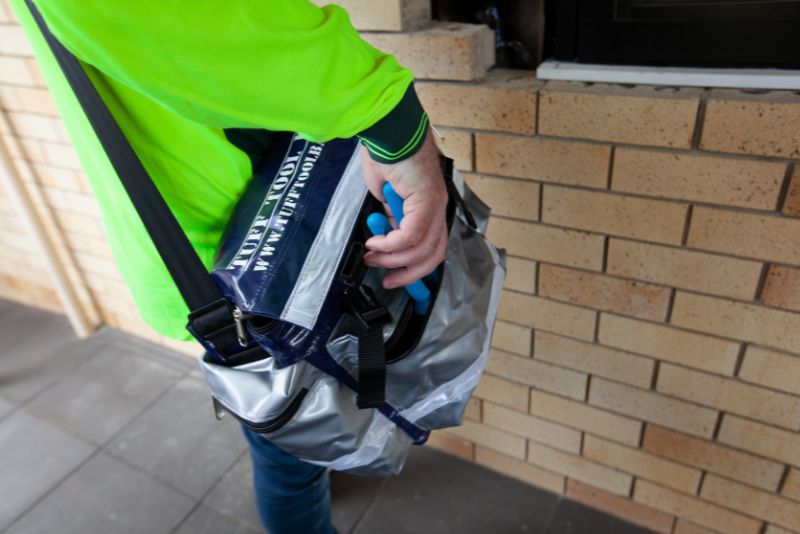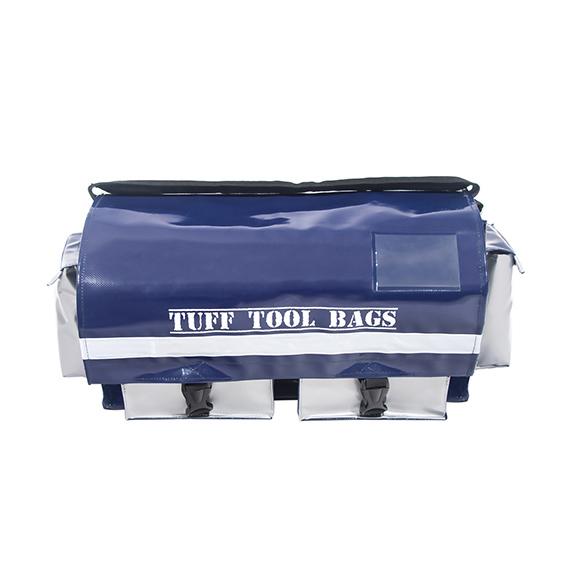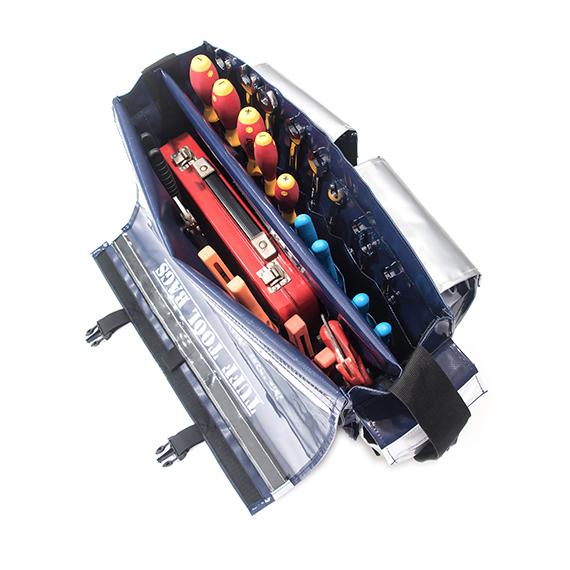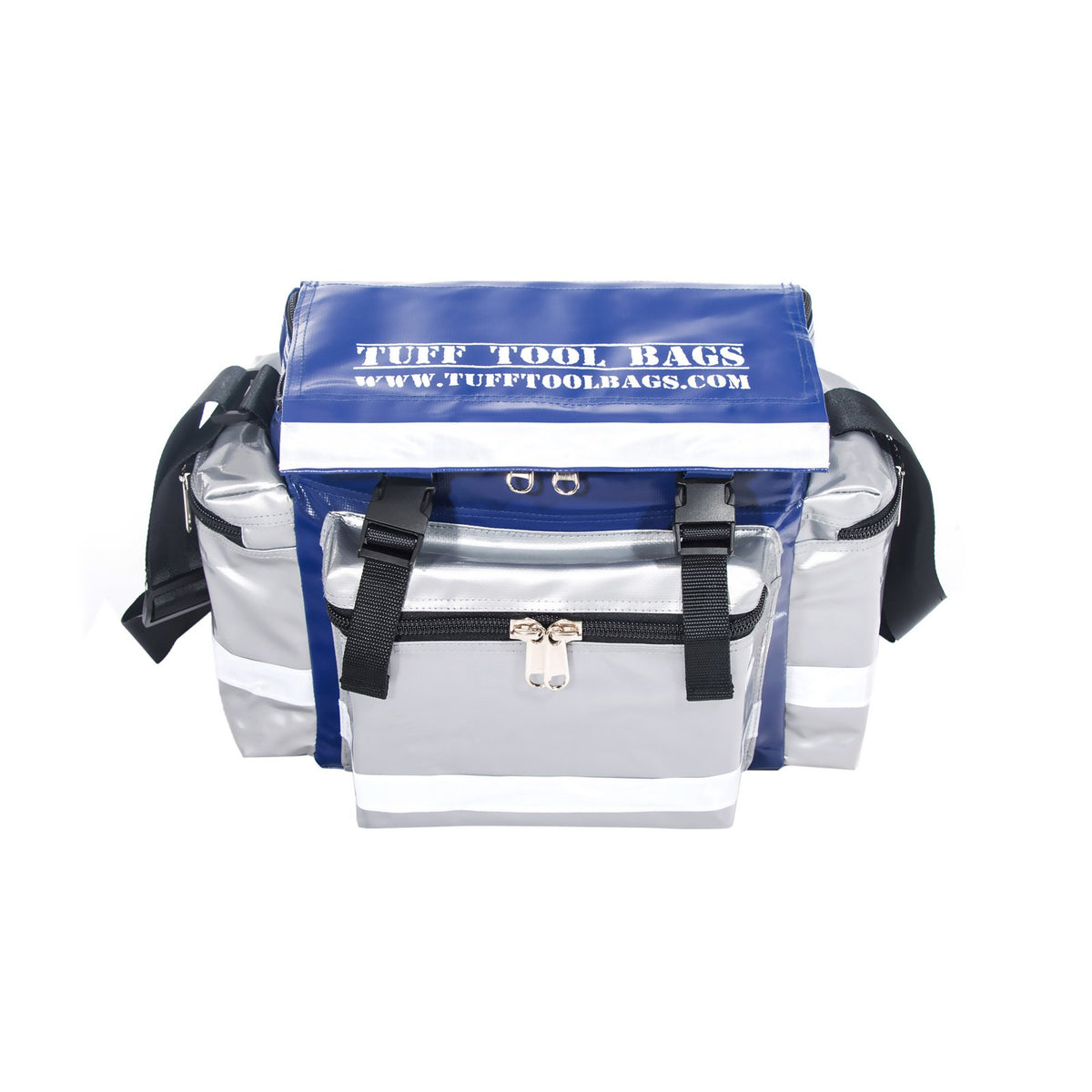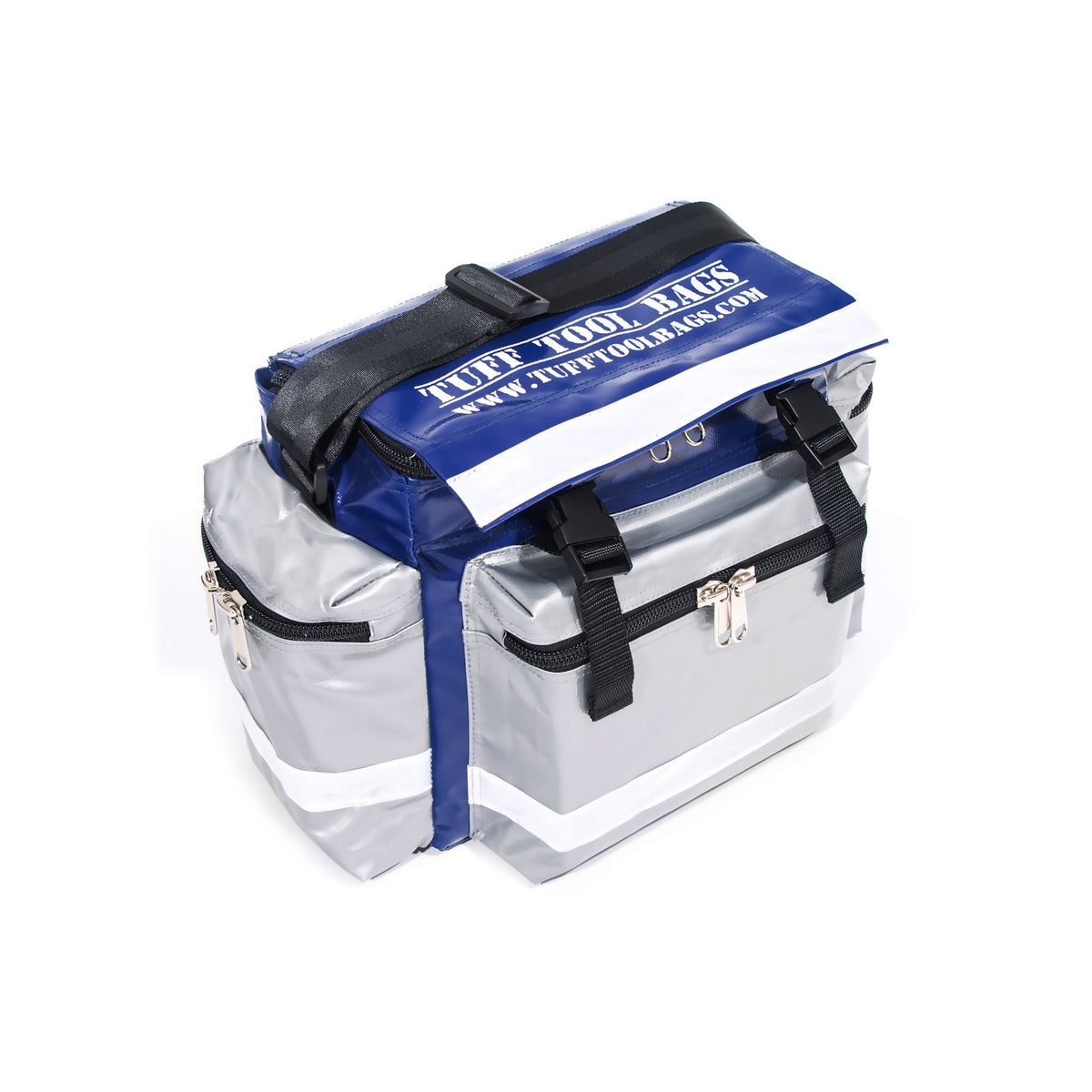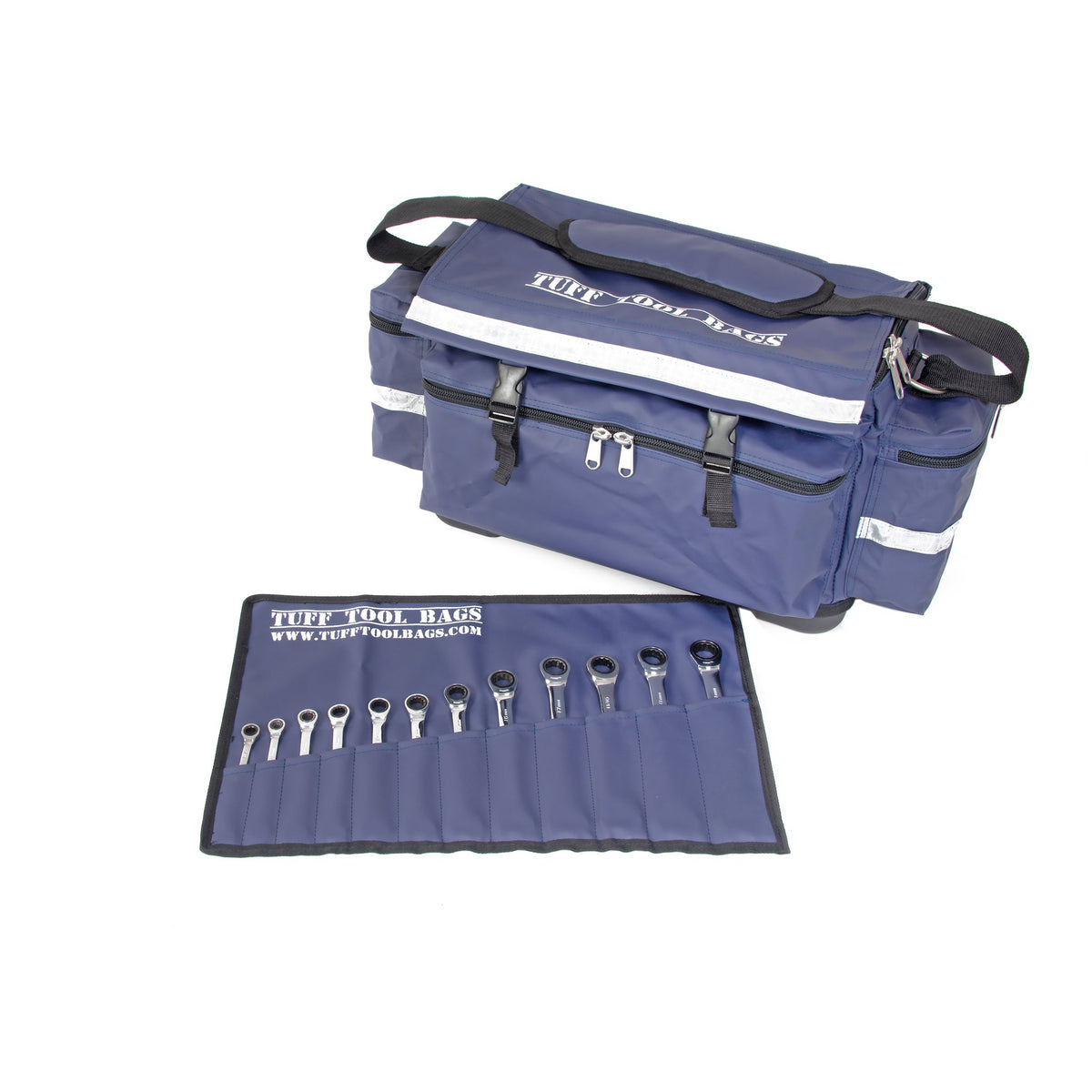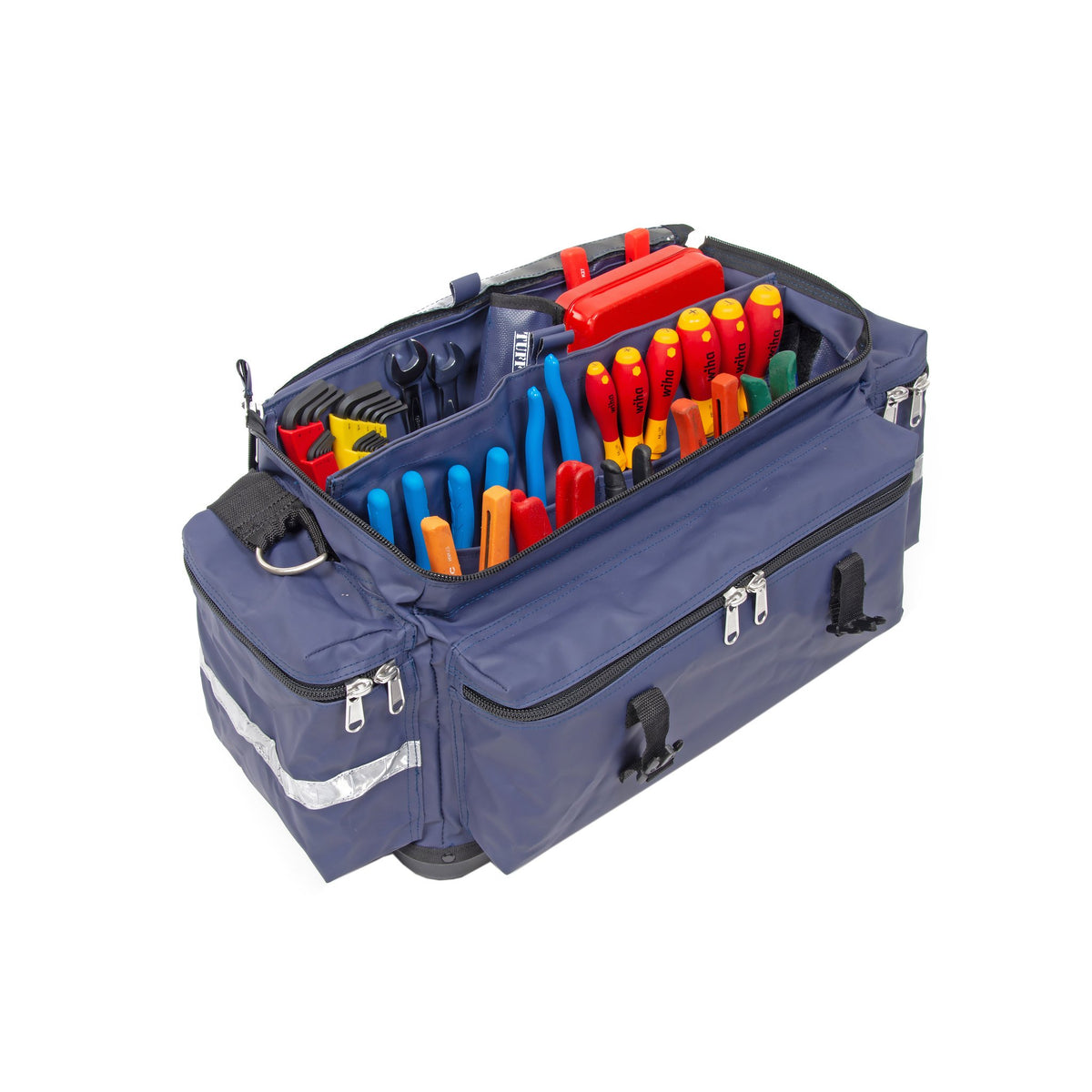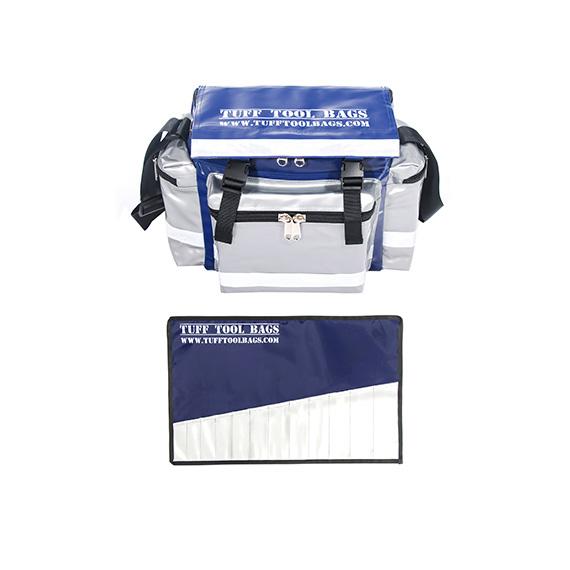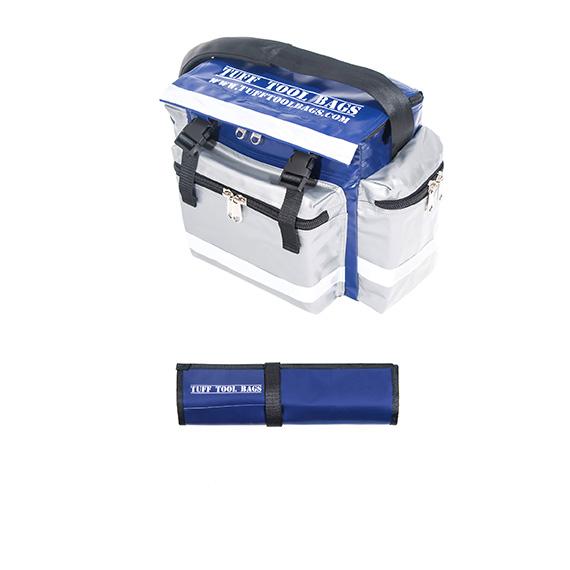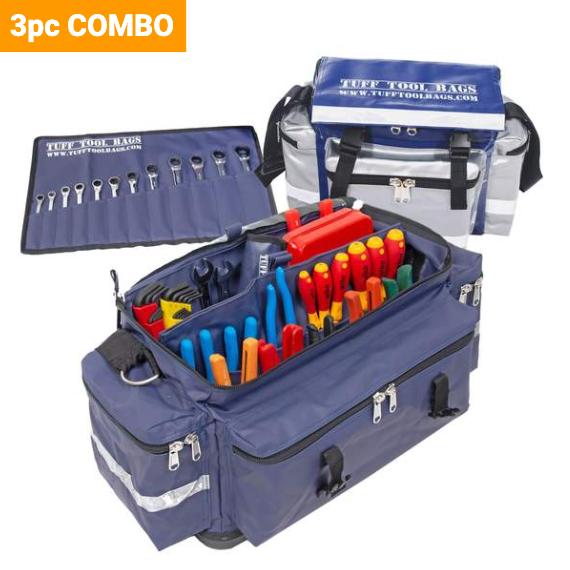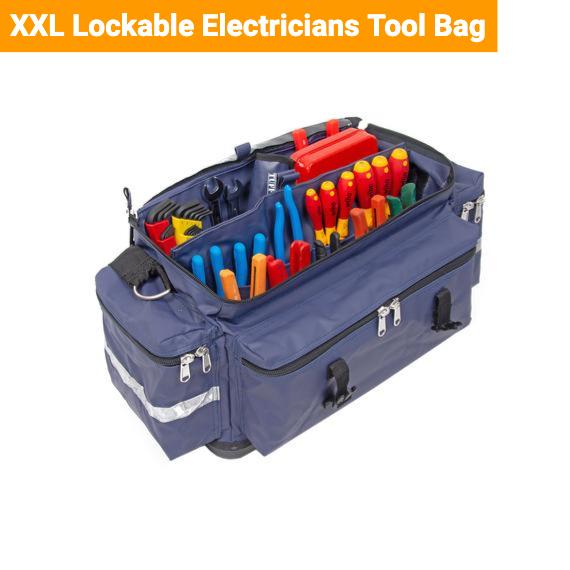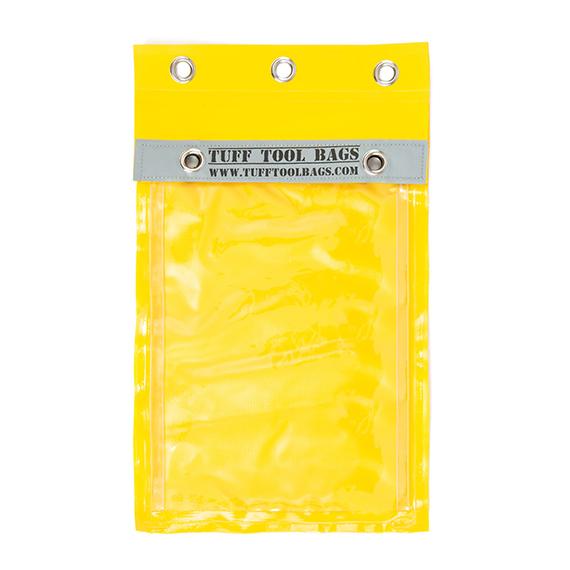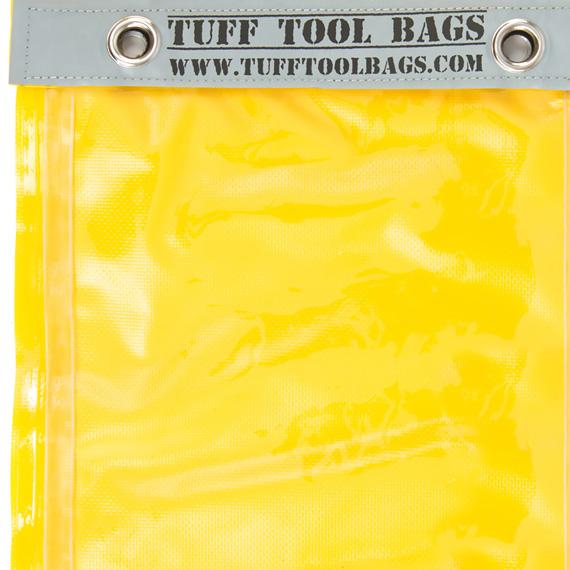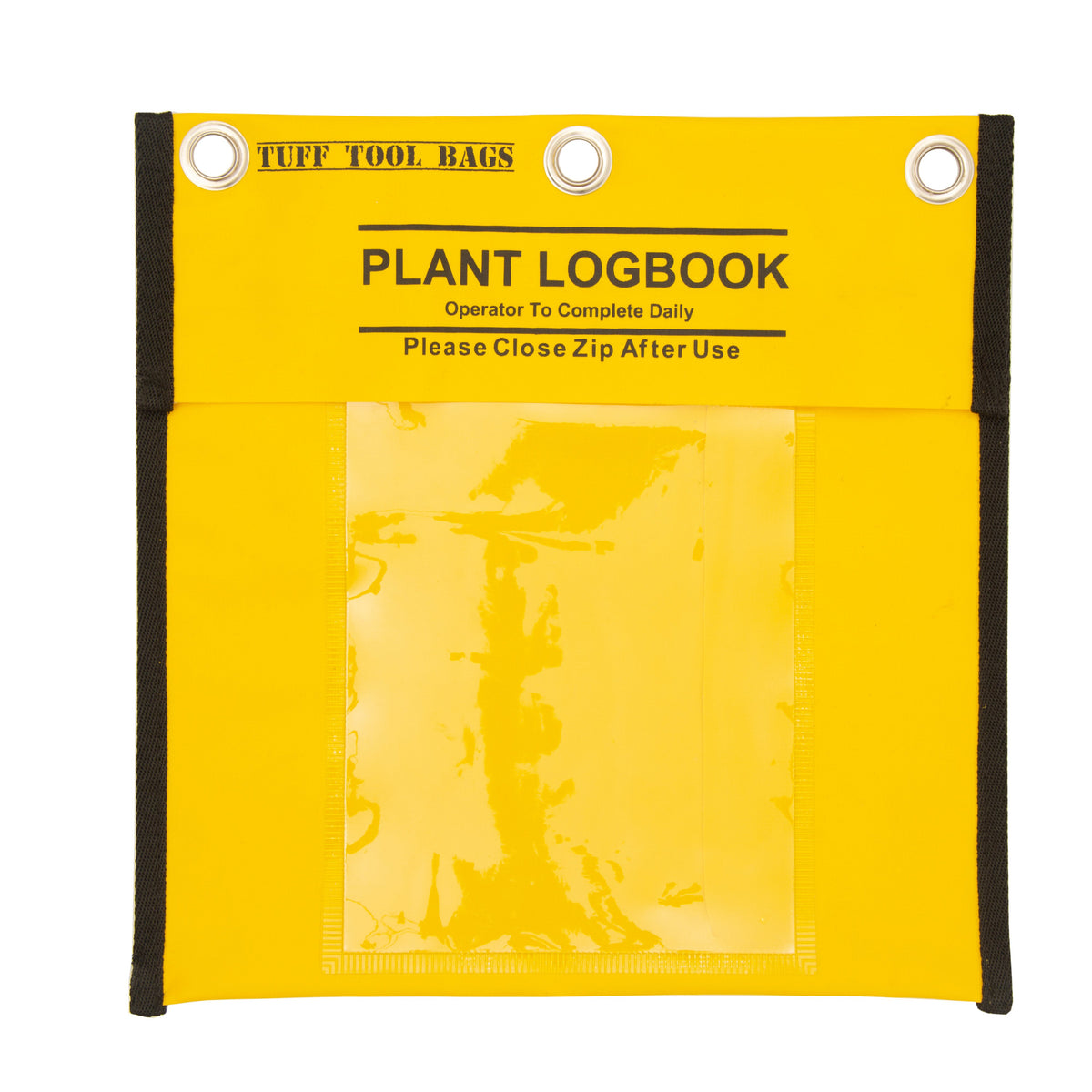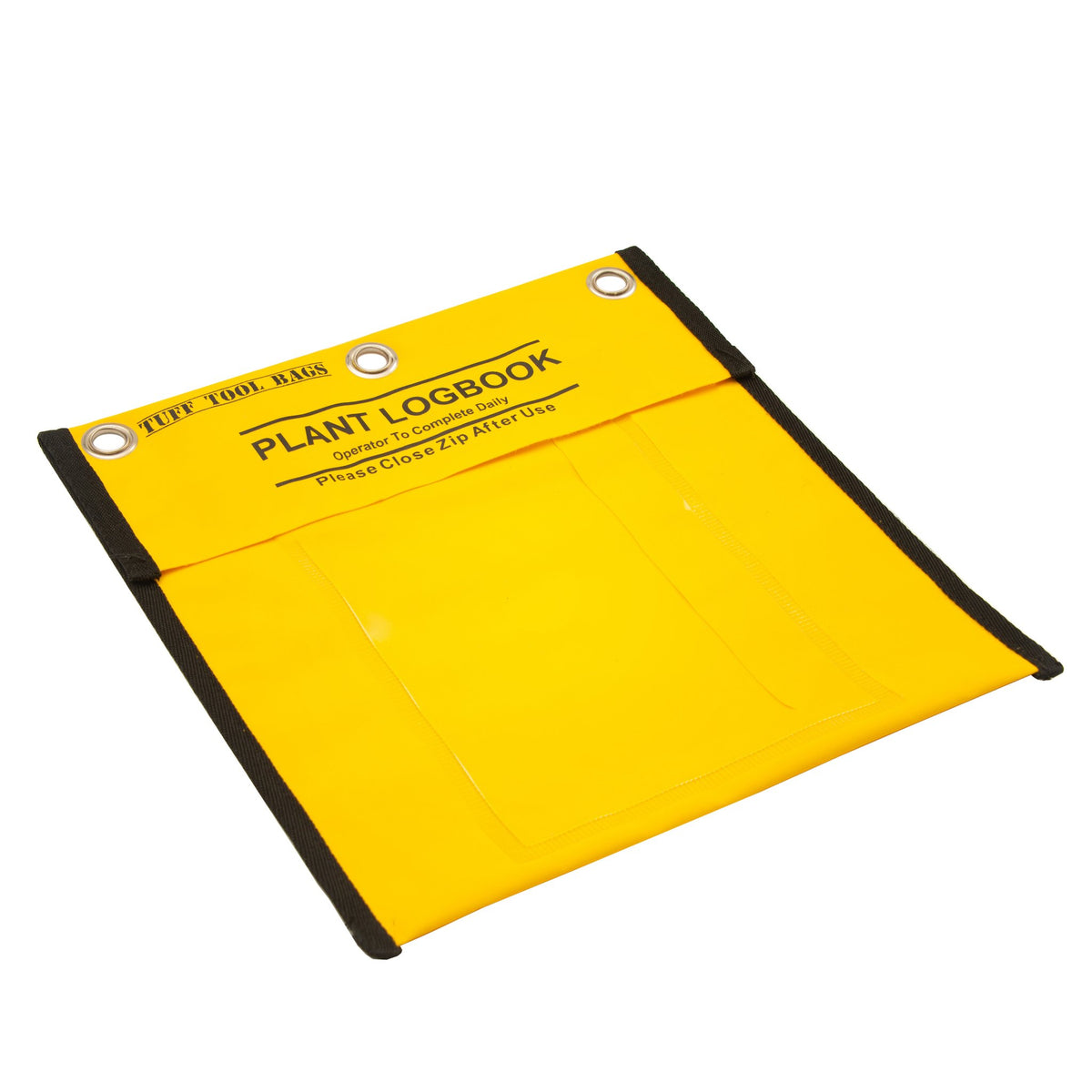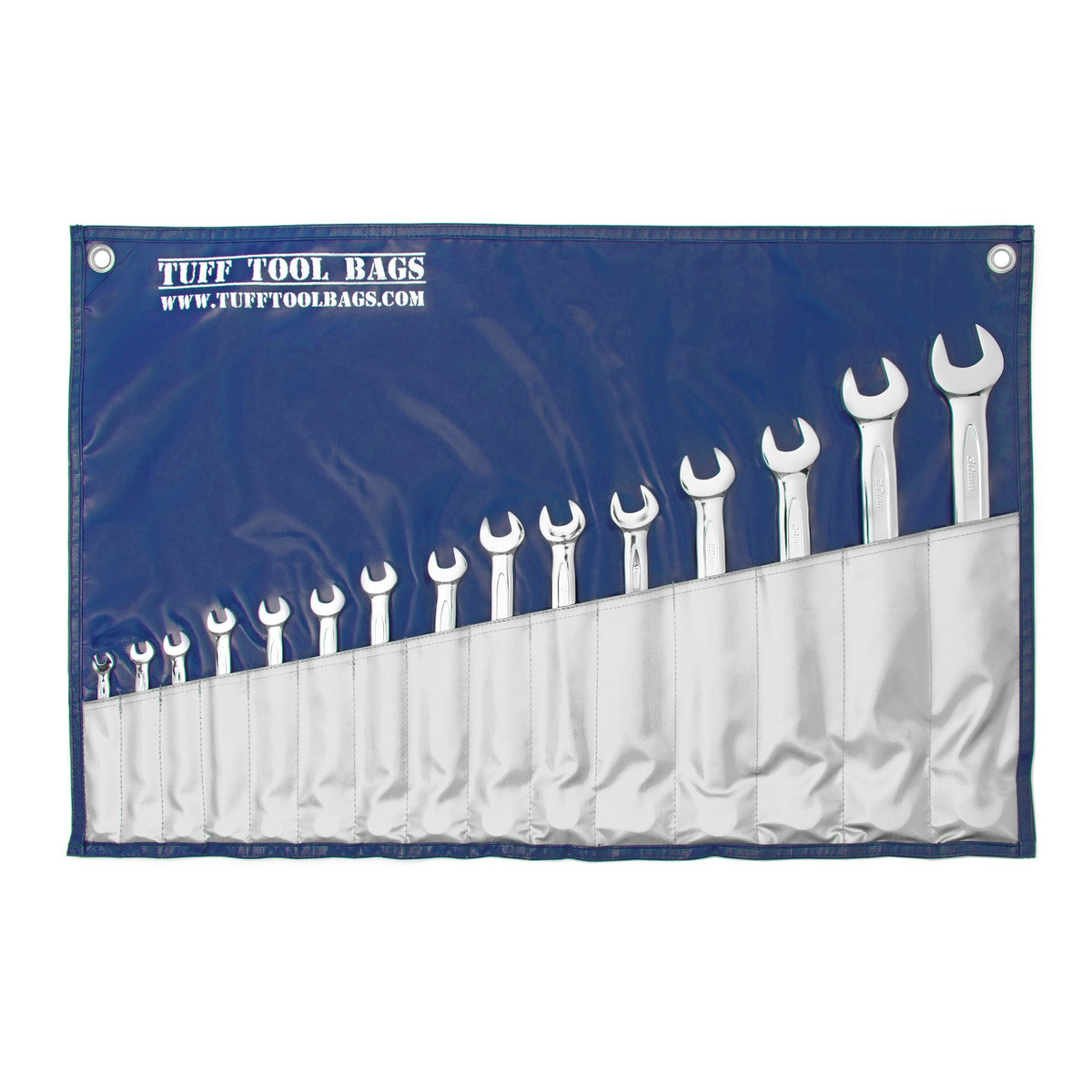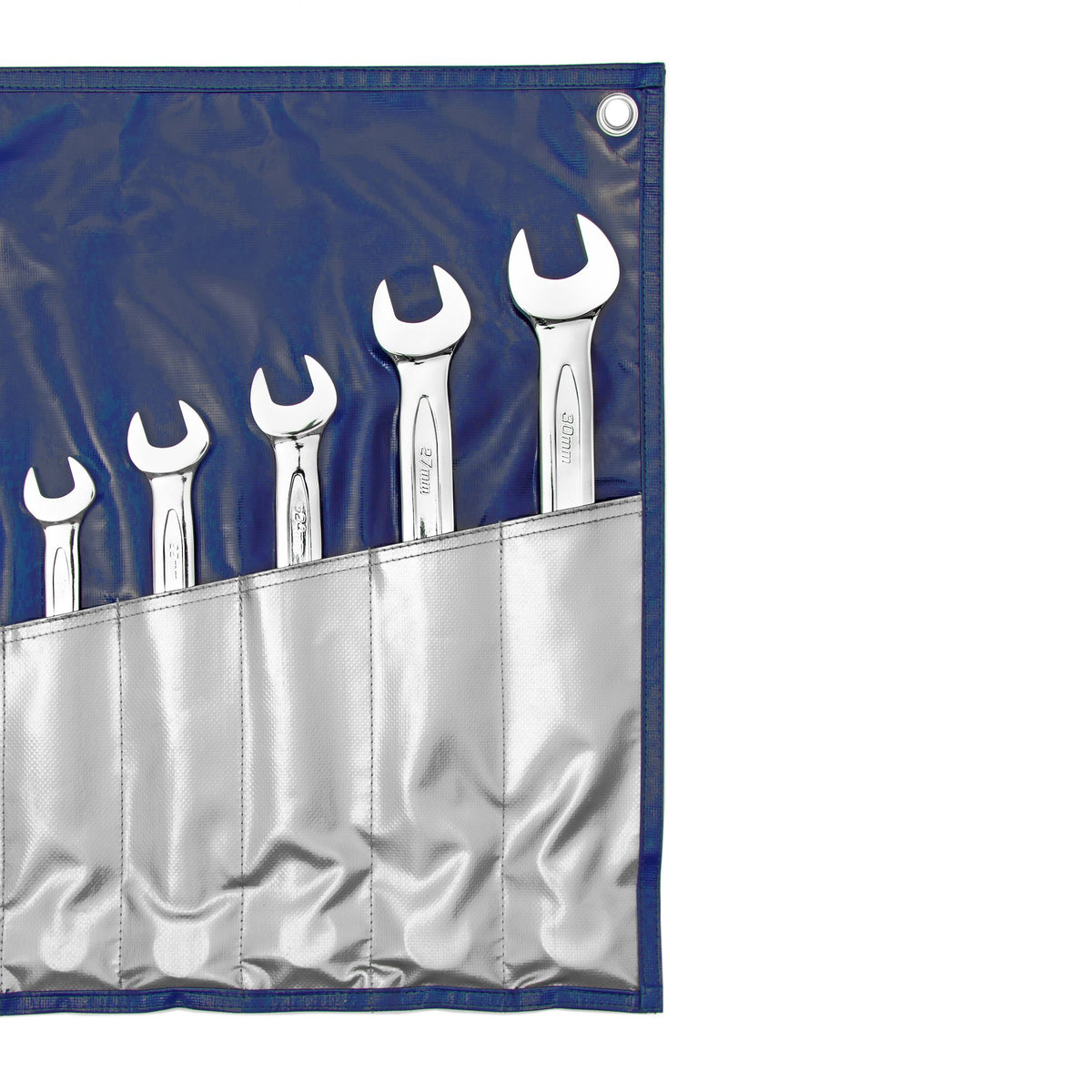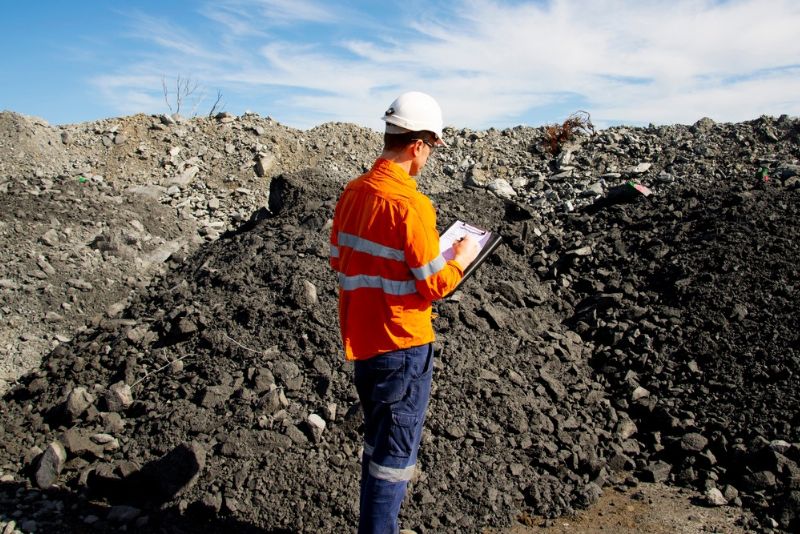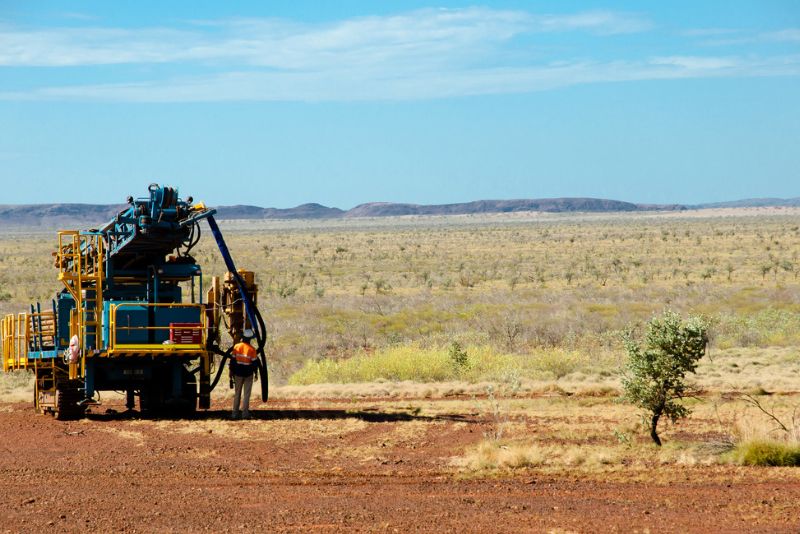Invented in 1920 by scientists who were determined to find a way to create a material that was more durable but also easier to make, vinyl is now the most common material used today. It’s no wonder why vinyl tool bags are so popular. If there’s one product that needs durability, it’s a tool bag.
What is vinyl?
Polyvinyl Chloride (PVC), commonly referred to as vinyl, is a plastic material created from the synthesis of ethylene and chlorine. Through this chemical bonding process, vinyl takes on its recognisable form.
Plastics can generally be categorised into two groups: thermoplastics, which become pliable when heated and regain their rigidity upon cooling, and thermosets, which maintain their hardened state after moulding and do not soften again. Vinyl falls into the thermoplastic category, which is advantageous because it facilitates recycling efforts.
What are the benefits of vinyl
Vinyl is a top choice for many manufacturers for several reasons. Let's dive into why it outshines other materials, considering factors like cost-effectiveness, durability, and its impact on the environment.
- Moisture resistance: Vinyl excels in resisting moisture and humidity, a major advantage, especially in regions with fluctuating weather patterns like Australia. Its ability to thrive in diverse climates means it has a longer lifespan, making it a cost-effective choice in the long run.
- Colour variety: One of vinyl's strengths is its ability to be manufactured in a wide range of colours. This versatility provides manufacturers with extensive options, allowing for greater creativity and customisation in their products.
- Durability: Vinyl is renowned for its exceptional strength and durability. This makes it particularly suitable for products subjected to tough conditions, such as vinyl tool bags used in demanding work environments. Its robustness ensures that products last longer and perform reliably.
- Affordability: Vinyl's cost-effective production process offers manufacturers the advantage of more flexible design possibilities. This affordability is a boon for those who are budget-conscious, enabling innovative product development without stretching financial resources.
- Environmental considerations: Surprisingly, vinyl, despite being a form of plastic, is environmentally friendly. It can be recycled, extending its useful life, and reducing waste. Additionally, a significant portion of vinyl is derived from renewable sources, contributing to the preservation of natural resources. Furthermore, vinyl production consumes less energy and fewer natural resources compared to alternative materials, making it a sustainable choice.
What industries is vinyl used in?
Vinyl's versatility finds applications across a spectrum of industries, making it a highly favoured material for various purposes:
- Healthcare: In the healthcare sector, vinyl serves as the primary material for crafting blood bags and tubing, ensuring the safe storage and transportation of vital medical supplies.
- Building and construction: The building and construction industry benefits from vinyl's use in water pipes, with PVC pipe installations being particularly popular due to their impressive lifespan of up to 50 years. Additionally, vinyl tool bags are prized for their durability in construction settings.
- Packaging: Vinyl's robust nature makes it an excellent choice for packaging applications, where it contributes to food preservation and safety by providing sturdy packaging materials.
- Wire and cable insulation: Vinyl's resistance to high electrical voltage positions it as a leading material for wire and cable insulation, ensuring the reliable performance of electrical systems.
- Automobile and electronics: In the automotive and electronics sectors, vinyl plays a crucial role as an under-body coating, enhancing the durability and longevity of vehicles and electronic components.
- Upholstery: Vinyl emerges as a top choice for upholstery purposes due to its exceptional durability, cost-effectiveness, and ease of maintenance.
Fun facts about vinyl
Did you know?
- Vinyl is the second-largest selling plastic globally and is renowned for its versatility. The leading plastic in sales today is still polyethylene terephthalate (PET or PETE).
- Over 85% of annually manufactured PVC resin is dedicated to durable products. Consequently, less PVC is recovered from household waste compared to more common packaging plastics like PET or HDPE.
- The primary suppliers of vinyl are concentrated in East Asia and the United States, with many of them being chemical companies.
- Approximately 70% of PVC finds its application in the building and construction sector. It is used in various construction components such as roofing, siding, flooring, windows and doors, wallcovering, and fencing.
Vinyl and the environment
Renewable source: 57% of vinyl production relies on salt, while only 43% originates from non-renewable petroleum feedstocks. Vinyl manufacturing is energy-efficient, produces fewer emissions, and consumes fewer natural resources compared to many other materials.
Chlorine and dioxin: In 1995, a study sponsored by ASME, analysing 1,900 test results from 169 global incinerators, found no direct link between chlorine in materials like vinyl and dioxin emissions. The Swedish Environmental Protection Agency confirmed in June 1996 that reducing PVC in waste doesn't lower dioxin emissions from waste gases.
Landfill durability: Vinyl products are highly resistant to the harsh conditions within landfills. They do not deteriorate or break down when disposed of in landfills, making them a preferred choice for landfill liners.
Chlorine containment: Vinyl is a plastic created from the synthesis of ethylene and chlorine, with the chlorine being securely bound within the vinyl structure. This means that chlorine gas is not released into the atmosphere when vinyl is recycled or landfilled, contributing to environmental safety.
Vinyl tool bags
Vinyl tool bags offer waterproof and weatherproof protection for your tools in any environment, from sunny days to sudden downpours. Unlike other materials, vinyl doesn't absorb moisture, ensuring your tools stay dry and in top condition. Vinyl tool bags are also exceptionally durable and resistant to wear and tear. They can withstand rough handling and rigorous tasks without showing signs of damage, thanks to their rip-stop vinyl fabric that prevents tears even from sharp objects.
MADE FOR TRADESMEN, BY TRADESMEN
At Tuff Tool Bags, we offer a wide range of vinyl tool bags to suit any tradie or hobbyist. And if you’re not sure what you need or need a little help, simply contact us today. We’re always happy to have a chat.


